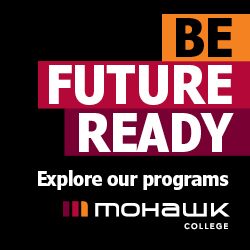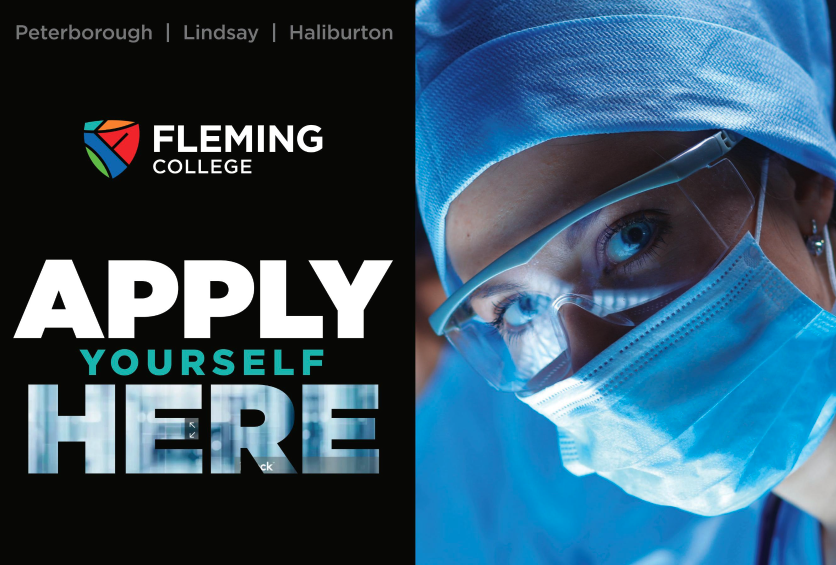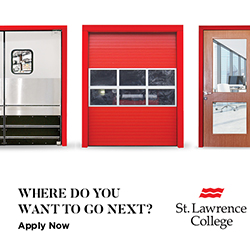It’s a major life decision and a large financial investment, so students deciding what college or university is right for them need to start their research early, access any and every resource available, and be sure they have a clear understanding of the range of options open to them.
Start the research early
There are 24 colleges and 21 universities in Ontario offering more than 3,000 programs of study, so leaving enough time for research is critical.
It’s important to start in Grade 11 because students may need prerequisites for the Grade 12 courses necessary for college or university admission, says Jennifer Boston, a guidance counsellor in Peel Region.
“Students who wait too long can feel rushed or pressured to make a decision and may find they don’t have the courses they need to do what they want to do.”
Catherine Anne Currie started exploring her options in Grade 11, probing online resources and studying university- ranking publications. She was sold on Western University and a visit to the campus that year sealed the deal.
But still, the Pickering resident kept her options open, applying to 11 different programs at four universities.
“I looked so long at the research and thought so long about it that I was so con dent about my choice,” said Currie, now in her third year at Western, studying biology and geology.
Her mom Cathie says Catherine Anne took charge of the university application process right from the beginning. “She did everything herself. She knows herself and she knew what she was looking for, so for me, it was a breeze.”
Start online
Online research is the place to begin.
“The E-Info website (electronicinfo.ca) of the Ontario University Application Centre is a fabulous resource created by all the universities in the province together,” said Ray Darling, registrar at the University of Guelph.
“I encourage students that it’s the first place to go. It is presented in a searchable, user-friendly way and includes links to all the institutions,” said Paula Johnson, assistant registrar at McMaster University.
“On the college side, ontariocolleges.ca offers a wealth of resources. It’s best to think of the online research process as narrowing the choices to the handful you will visit,” says Johnson.
From there, she recommends that students build a chart based on their priorities that allows them to visualize their choices.
“So is the location of the school important to you? Do you want to be a certain distance from home? Do you want to live in residence? Is a paid work or experiential education opportunity important? Create a chart out of all that information.”
Darling also encourages students to carefully read rankings and independent assessments of the province’s universities in publications such as Macleans, Times Higher Education and QS.
Assess your interests and the labour market
If you don’t have a clear idea of your education path, talk to your teachers and guidance counsellors. Take an aptitude test and interests and skills assessments that can point you in a direction”, says Devin Robinson, student recruitment management at Fanshawe College. Talk to anyone you can – your relatives, your parents’ friends, your friends’ parents, neighbours, for instance – about their jobs.
It’s important to have a current and complete view of the opportunities out there in the labour market, too.
“Fanshawe has more than doubled in size since 2002 and most of that growth is in geographic information systems, video game development and 3D visualization. Many people may not understand these jobs exist or that they are here in Ontario. If a program is offered at an Ontario college, it tells you there is local job demand for it.”
Some students know they want to study technology, design or a trade but don’t know the specific field for them. Many colleges offer fundamentals programs that introduce them to a range of fields.
Other students aren’t ready to make a decision or don’t feel ready for post-secondary right out of high school. There is nothing wrong with taking a year off to earn more high school credits or work to save for tuition. Remember that many programs offer January starts. That buys some time, with the added bonus that the volume of applications is lower.
For those who do have a chosen path, Robinson urges them to speak to someone in that line of work.
“Students may think they know what that job is all about but they may
not understand the nuances of a role, especially if their idea has been shaped by TV or the movies. They need to know the reality of the job.”
Visit to find the right fit
The right fit is intangible but crucial to making the right choice.
“You have to feel comfortable. It has to feel right and that makes everything else fall into place. Visiting the campus, to me, is absolutely critical to making the right decision,” said Johnson. Do that in Grade 11, before the pressure of the last year of high school and before the application process begins.
Universities and colleges hold open houses where faculty and students are available to talk to current students, and all labs and classrooms and campus amenities are open to explore.
“I had to visit and be on campus to figure out if this is a place I could spend the next four years of my life,” said Currie. “If you are somewhere you don’t like, you won’t want to get out of bed in the morning.”
Darling ensured both daughters visited the campuses they ultimately chose for themselves.
“You get the best sense through that. It’s important because you will be there three to four years or more.”
Students and their families can also book private campus tours hosted by current students.
“I find it scary when a student’s first trip to an institution is after they have accepted an offer,” said Robinson. “Understanding the feel of a campus and how big it is, what the city is like, it’s a very personal thing. Your best chance of making the right fit is by visiting institutions in the application phase.”
Take advantage of fairs
The fall brings fairs for prospective students.
The Ontario Universities’ Fair (ouf.ca) held each September and the Ontario College Information Fair (ocif.ca) in October are both held in Toronto and allow high school students and their families to meet faculty, staff and students from each institution under one roof.
Both events feature information sessions about programs, admission requirements, paying for education, career planning, the application process and student life.
Don’t be shy, Robinson tells students. It’s your chance to interview your potential choices. Target the schools you are most interested in and engage with the staff there. Ask questions and get a sense of the feel of the college or university, says Darling.
“The Ontario Universities’ Fair is a great one-stop place both for information and for impressions about the culture of a university. I tell my staff that students will remember how they felt when you talked to them.”
The universities and colleges also take to the road to visit high schools across the province, offering presentations and opportunities for students to ask questions. Be sure to ask your guidance counsellors for a schedule of visits.
Understand the full range of options
Colleges and universities are increasingly working together on bridges between university and college programs. For instance, the number of university graduates enrolled in college has increased more than 40 per cent over the past five years.
A medical sciences radiation program is a great example, says Johnson at McMaster. Students earned both a degree and an advanced diploma at Mohawk College. “It is leveraging the expertise of both institutions and there are so many examples of that. We see so many students who do a post-graduate diploma at college after finishing a degree or who come to university after finishing a college program.”
Robinson says students should pay great attention to the educational pathways a particular program offers. Does it lead directly to a marketable skill? If it’s a college program, does it have a path to a degree? If it’s a university program, is there an option for moving to applied studies at a college? Does it include a co-op or placement?
Don’t get ahead of yourself
Sometimes students get so wrapped up in choosing a career path that they are already thinking 10 years down the road, says Johnson. While it’s important to have a plan, take your education one step at a time, she advises.
“Concentrate on finding the university that’s the right t for you and then take it from there. Be open to your focus and priorities changing. Look for programs that offer you some flexibility, especially in first year.”








